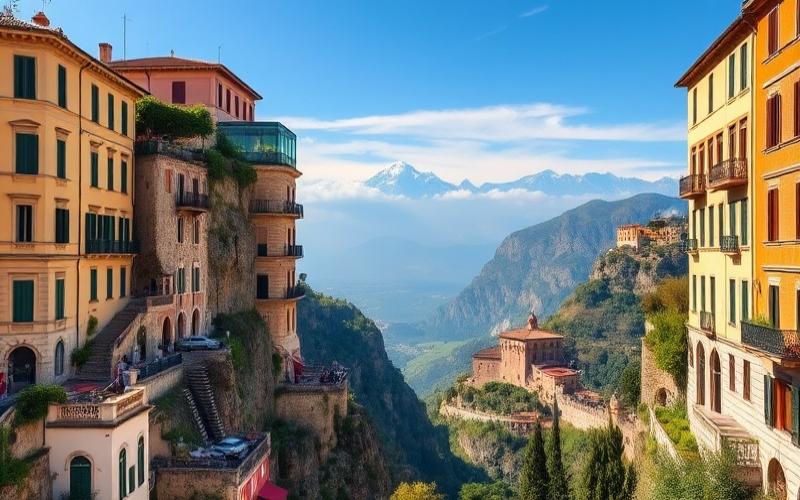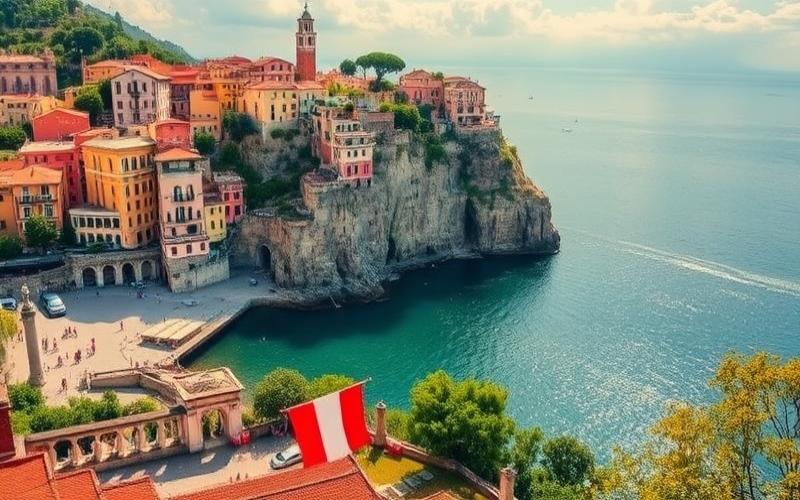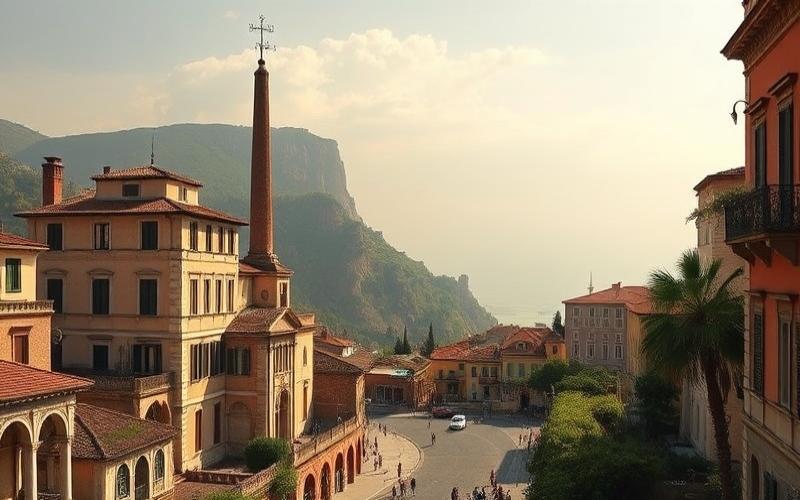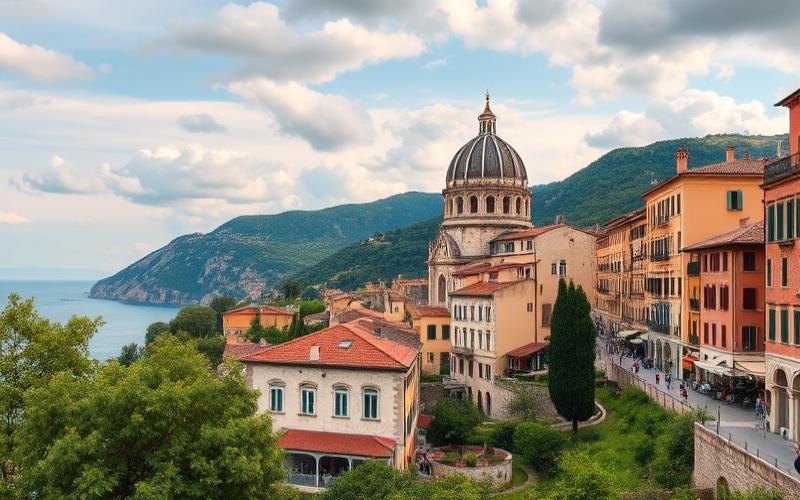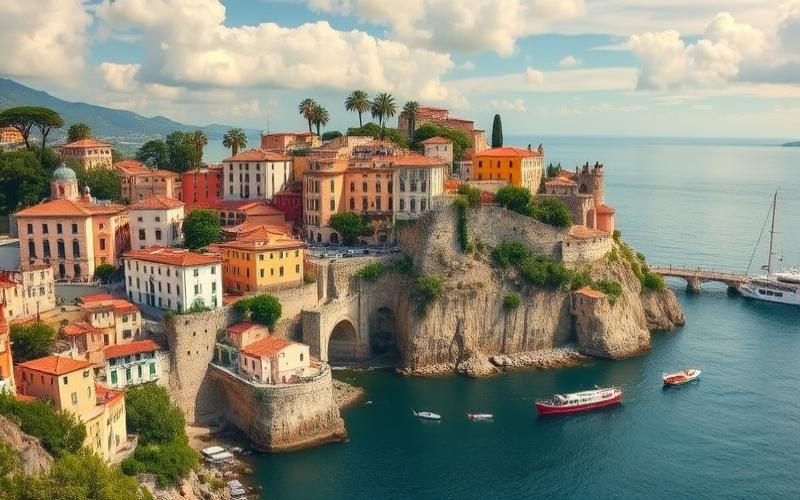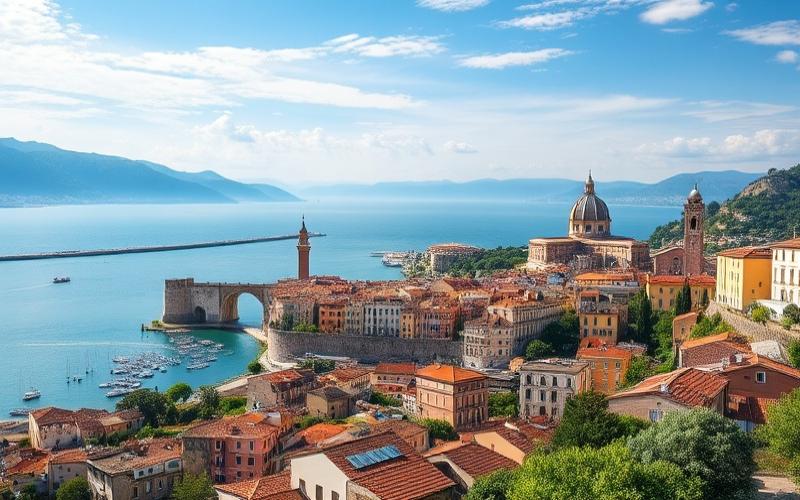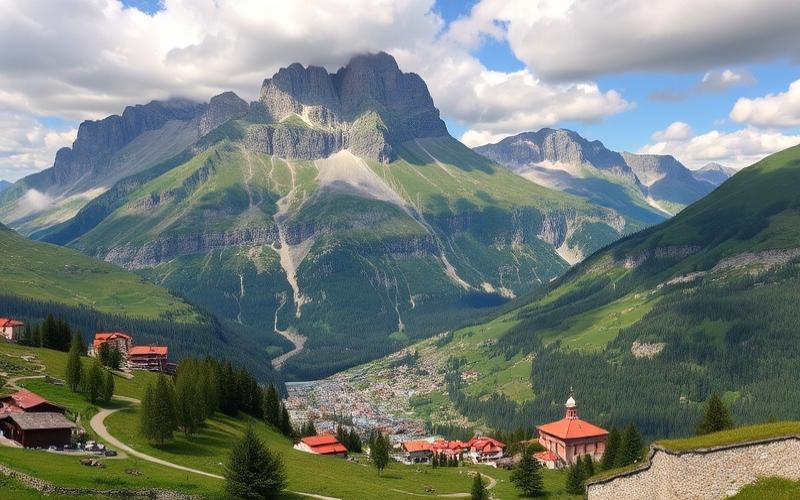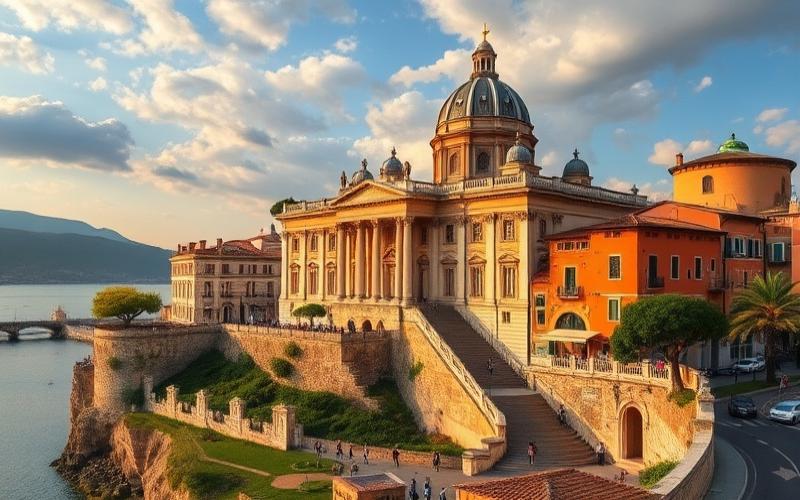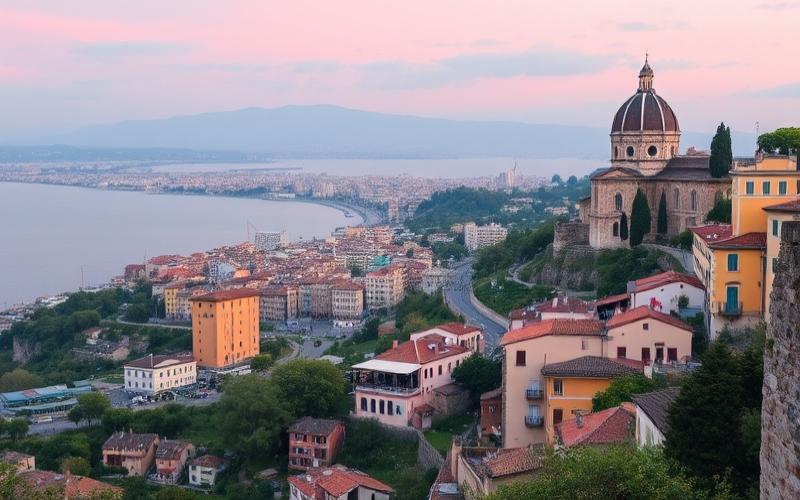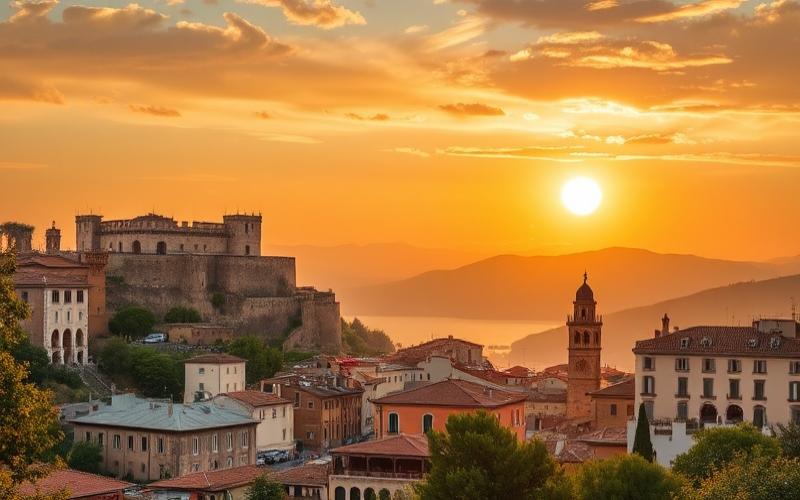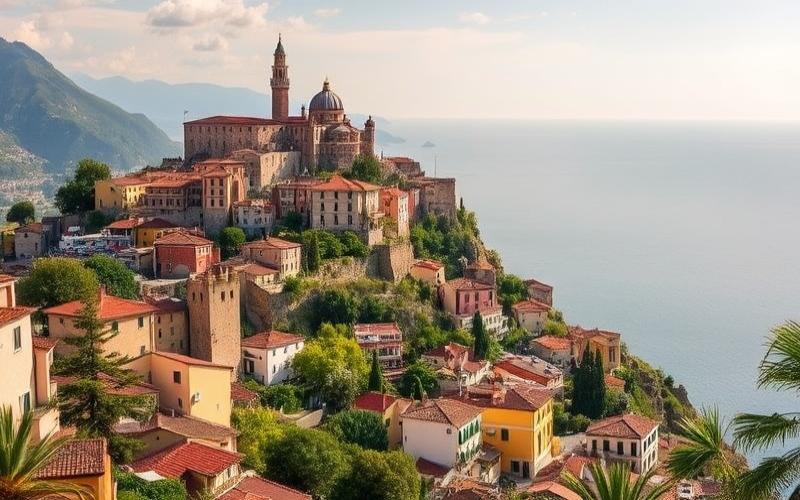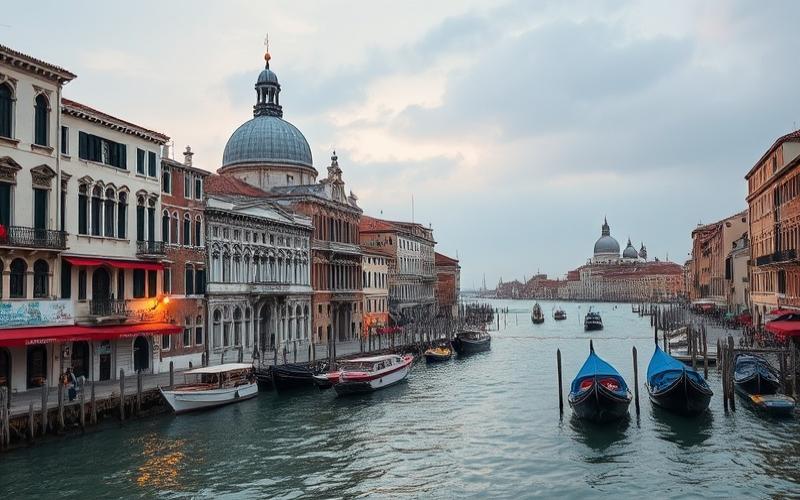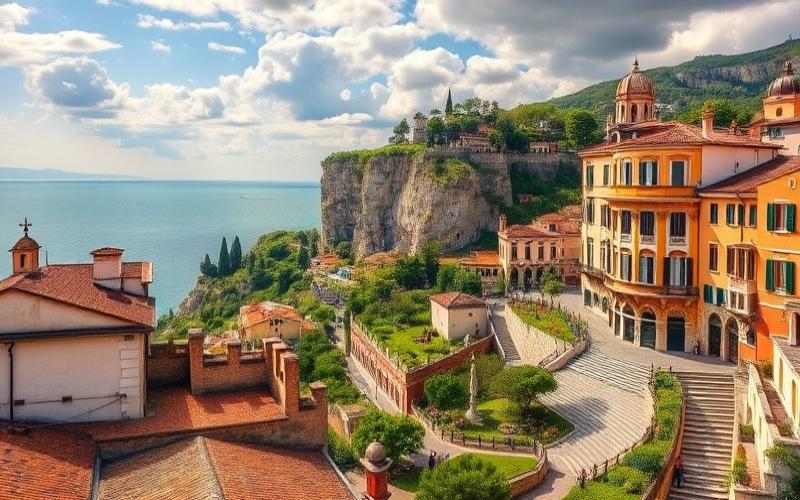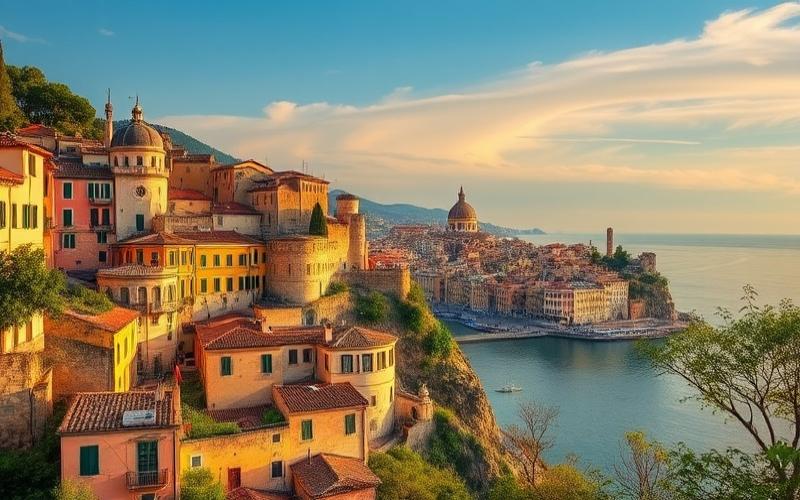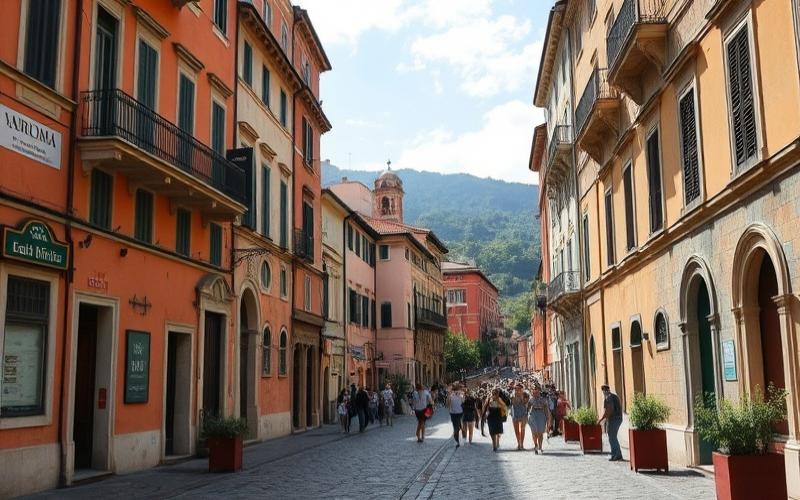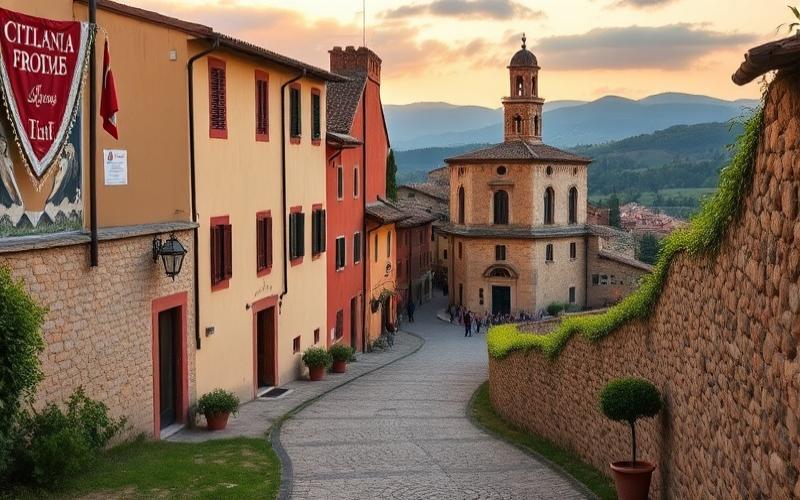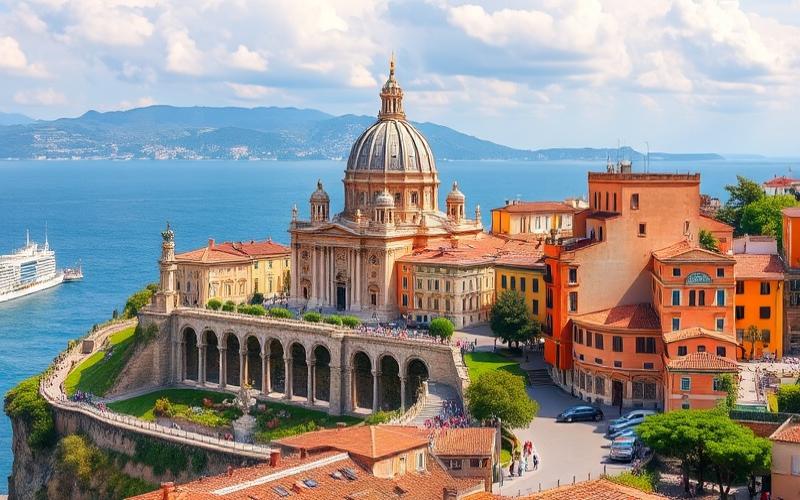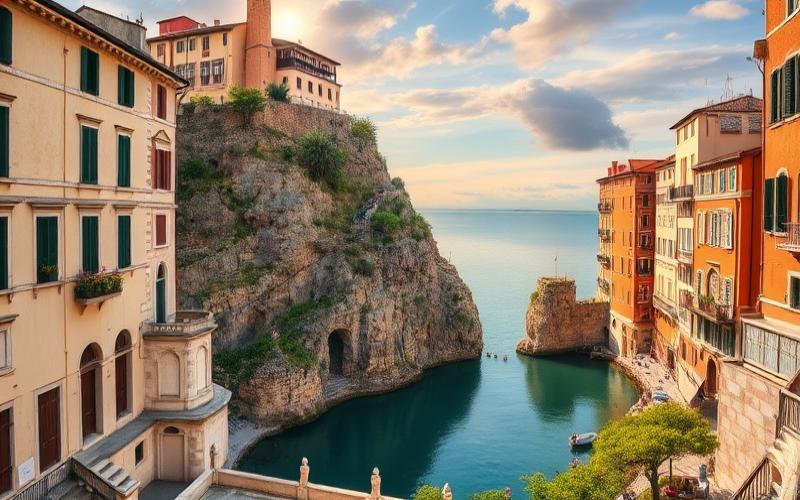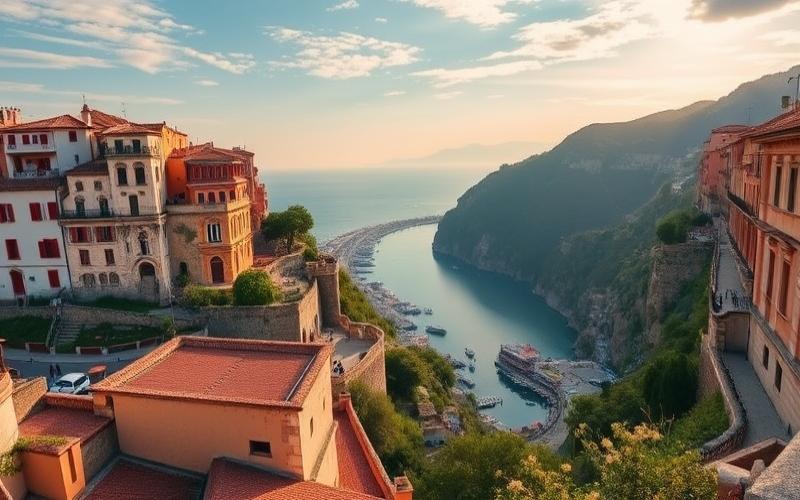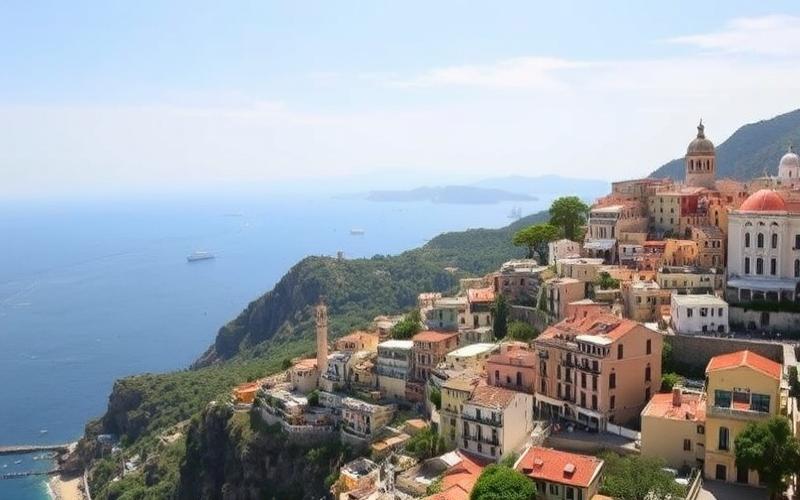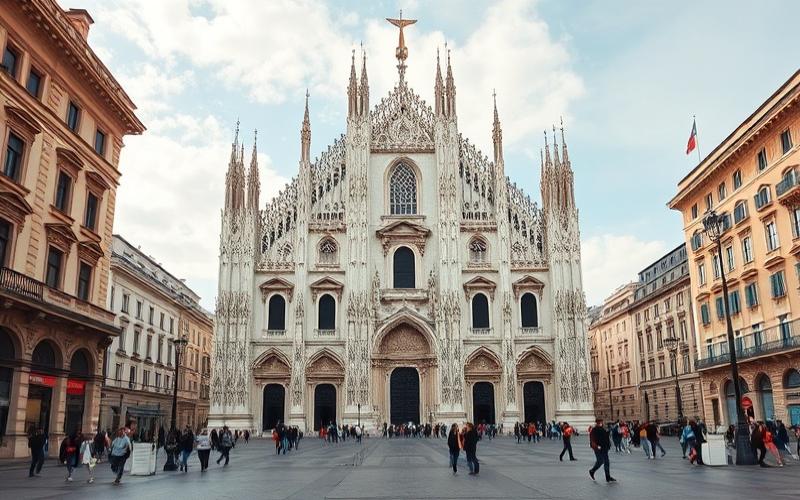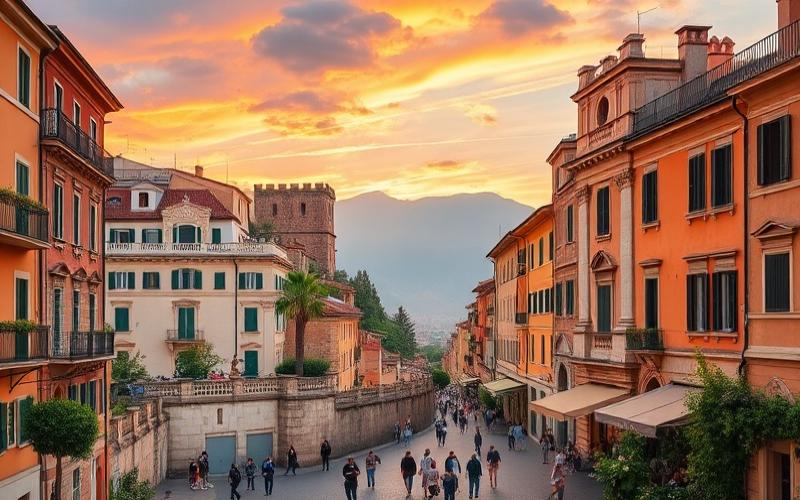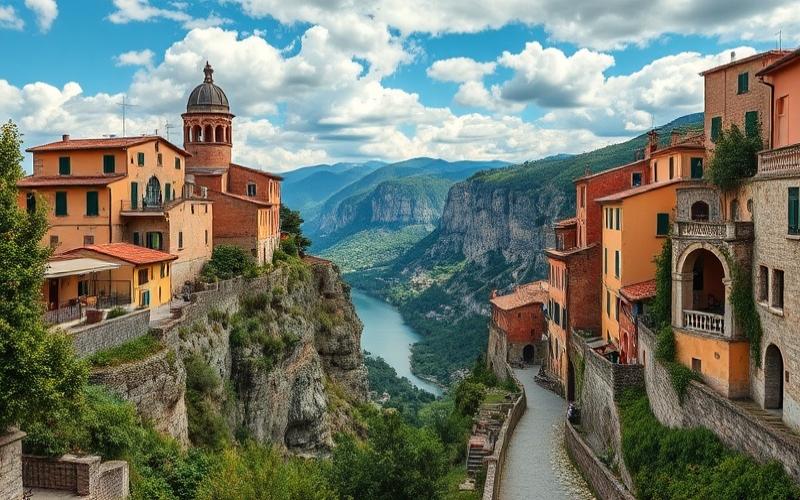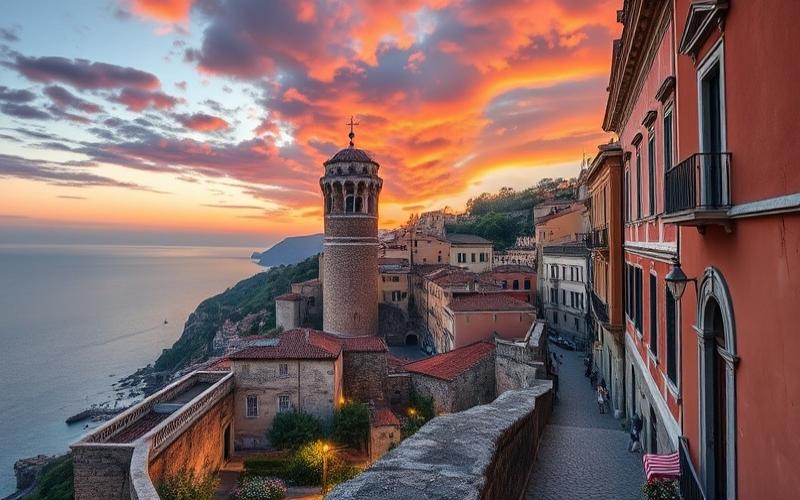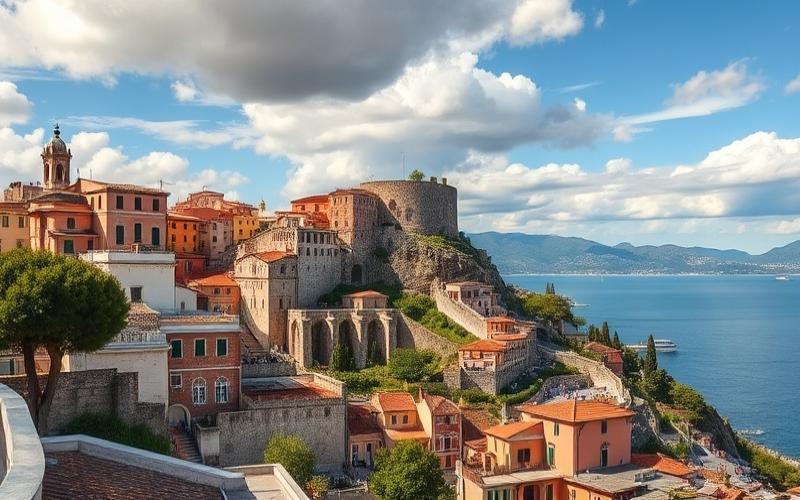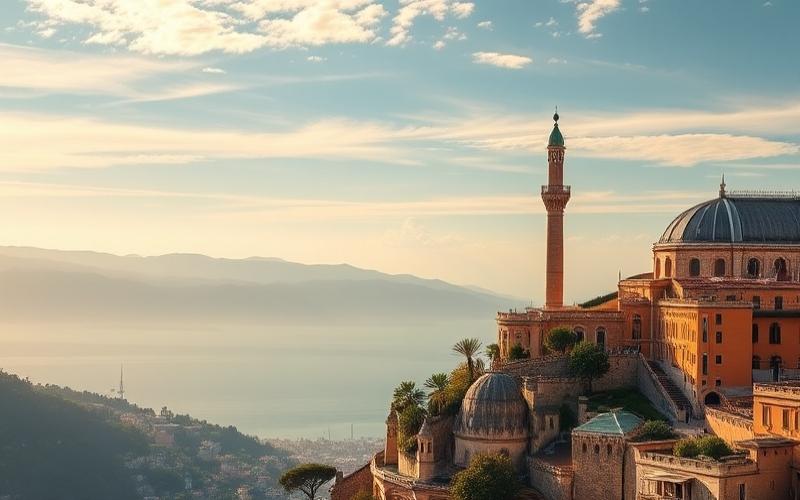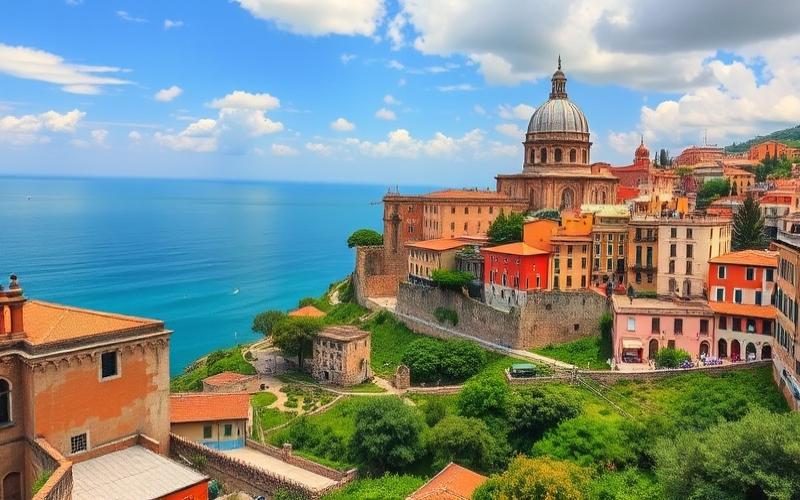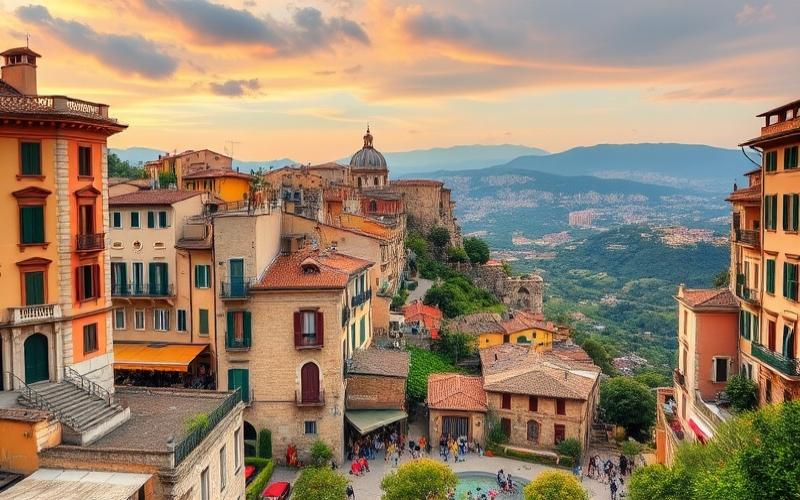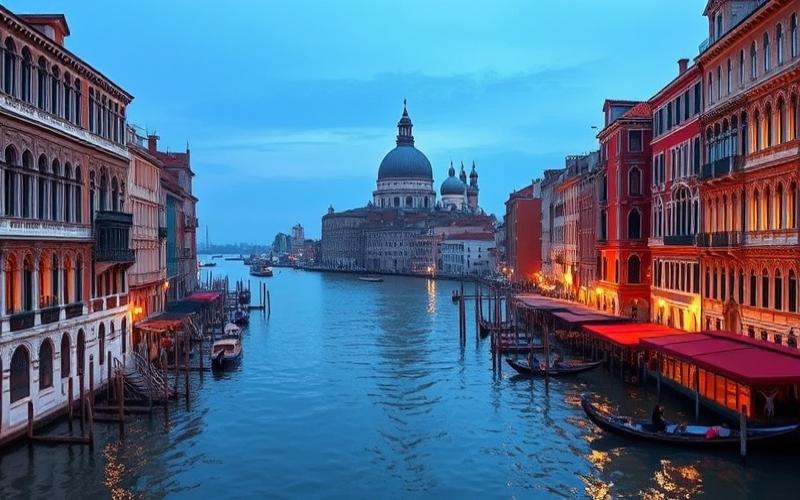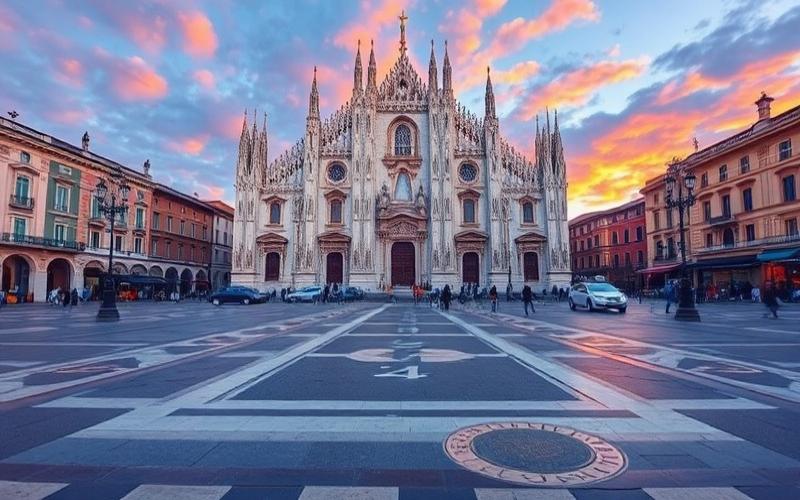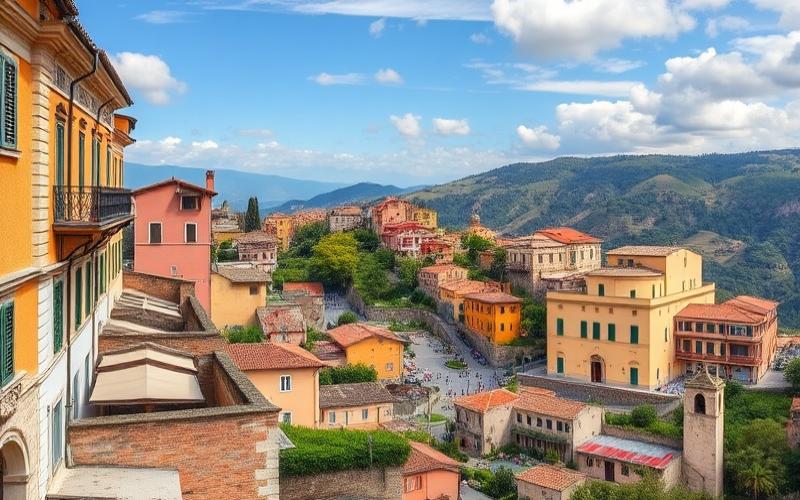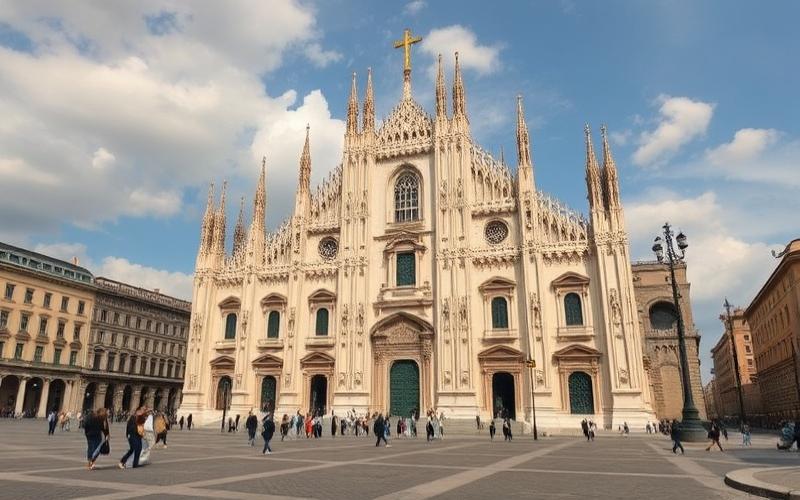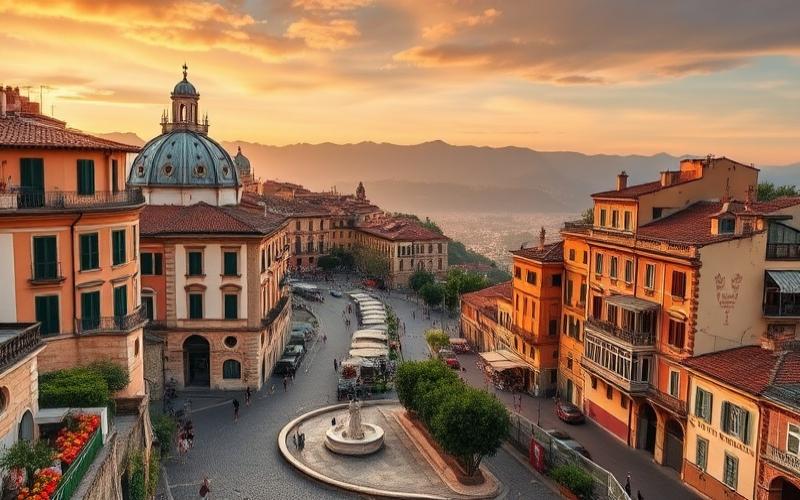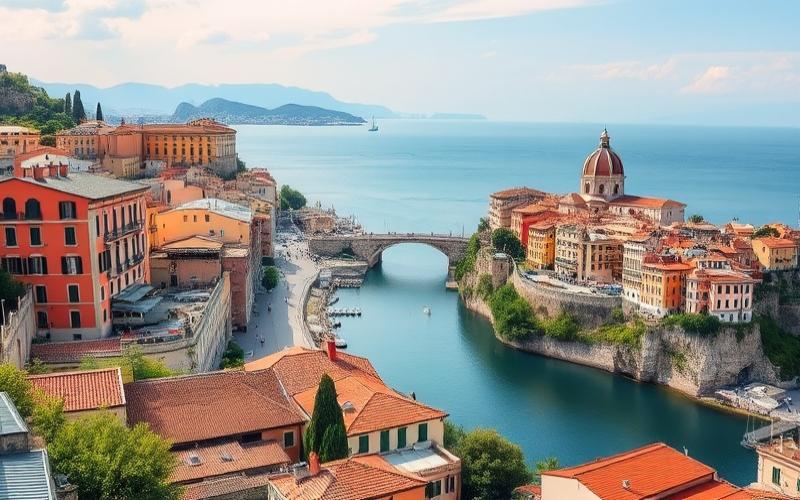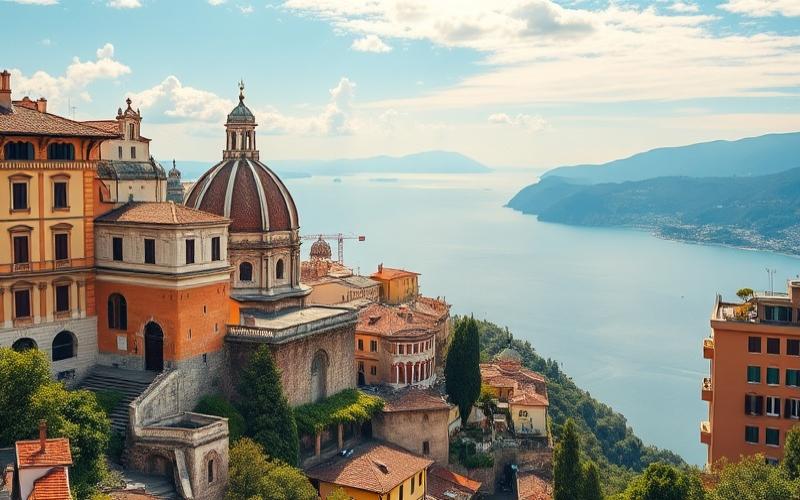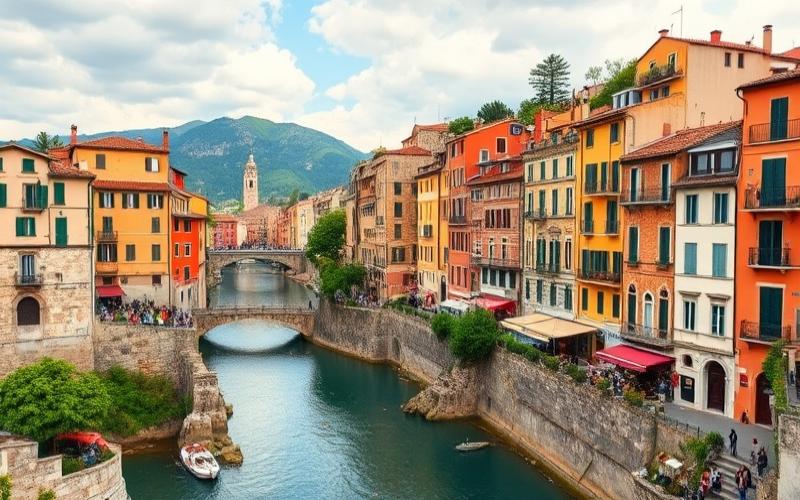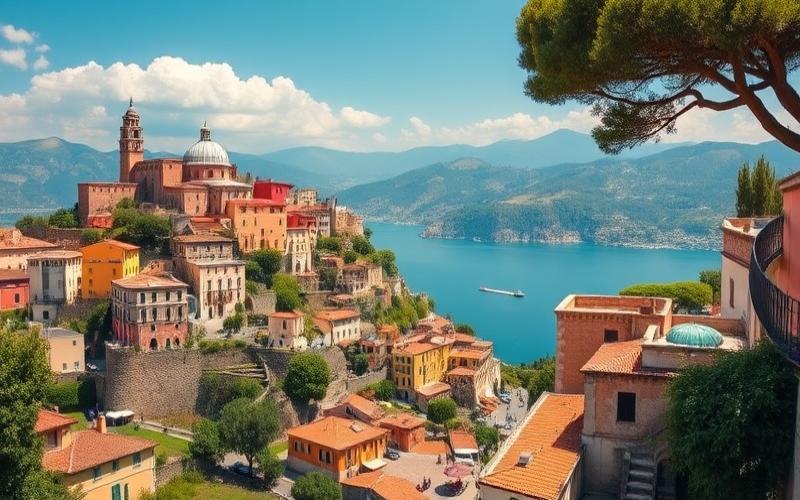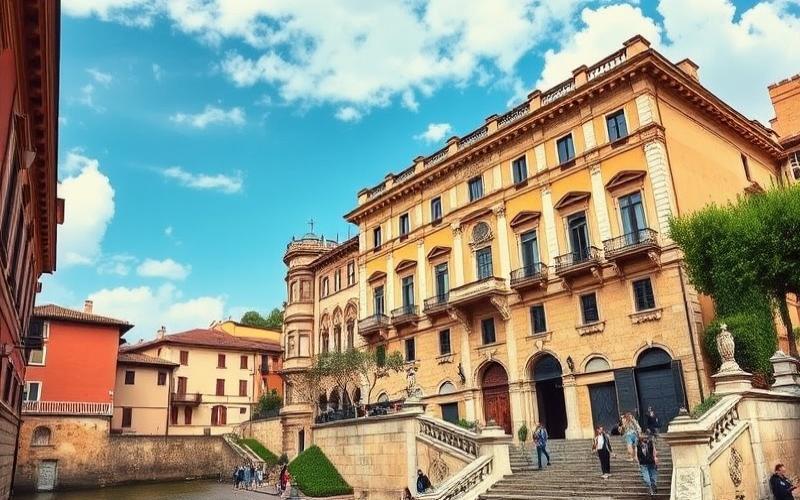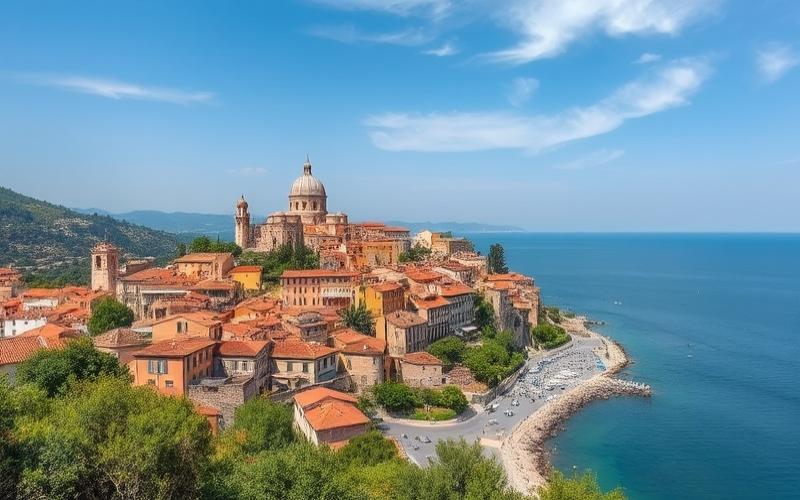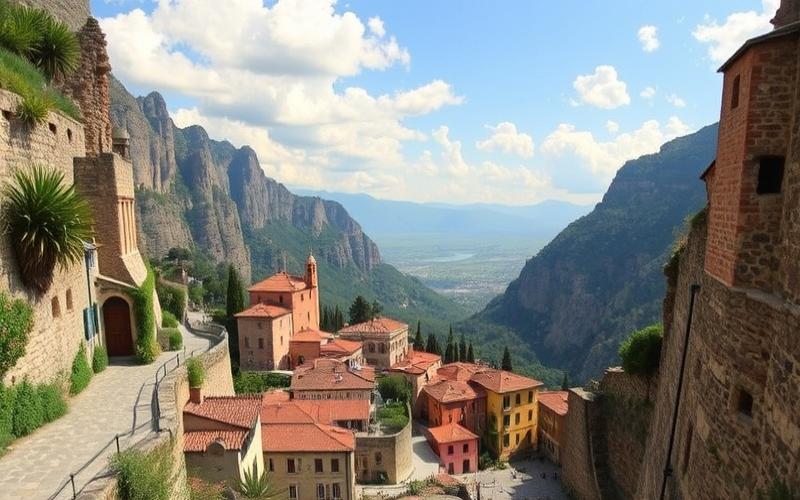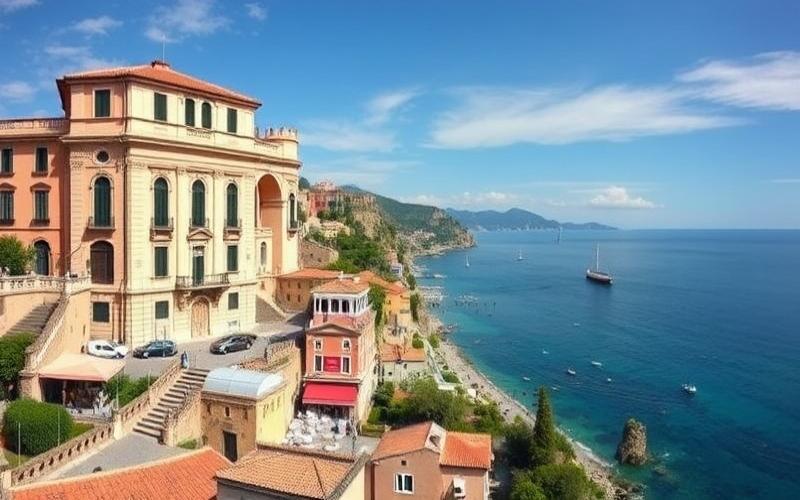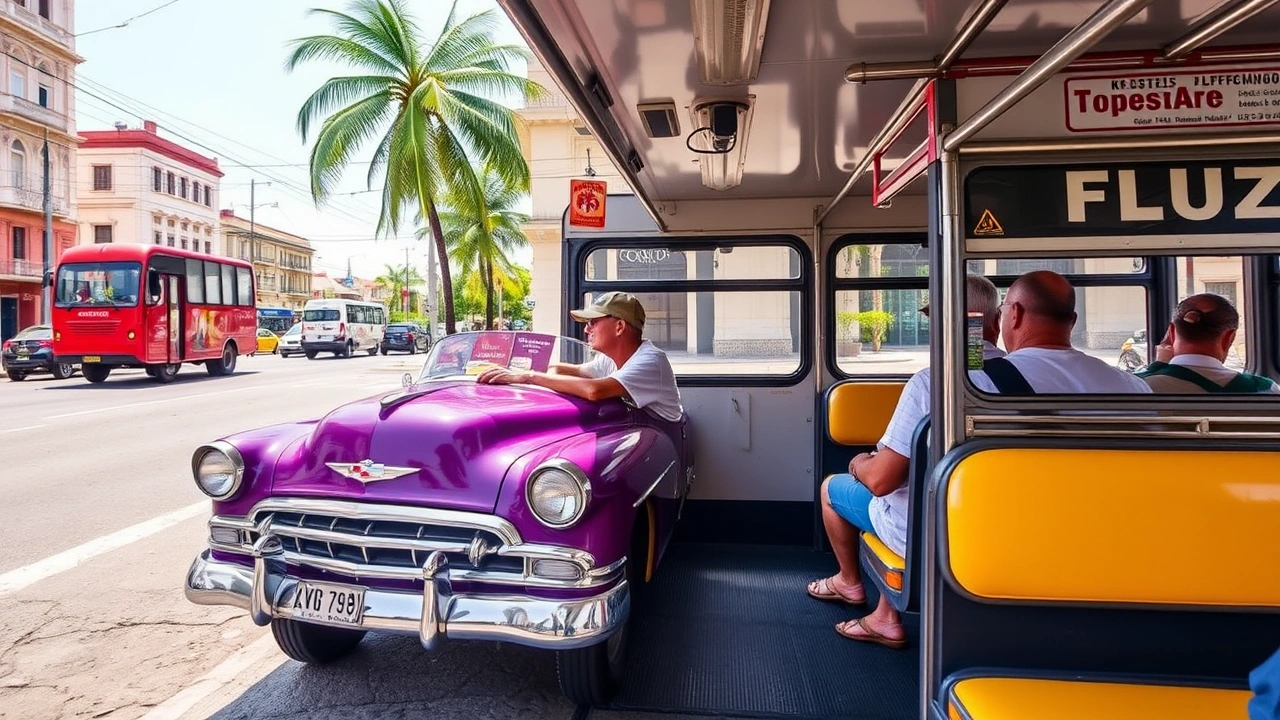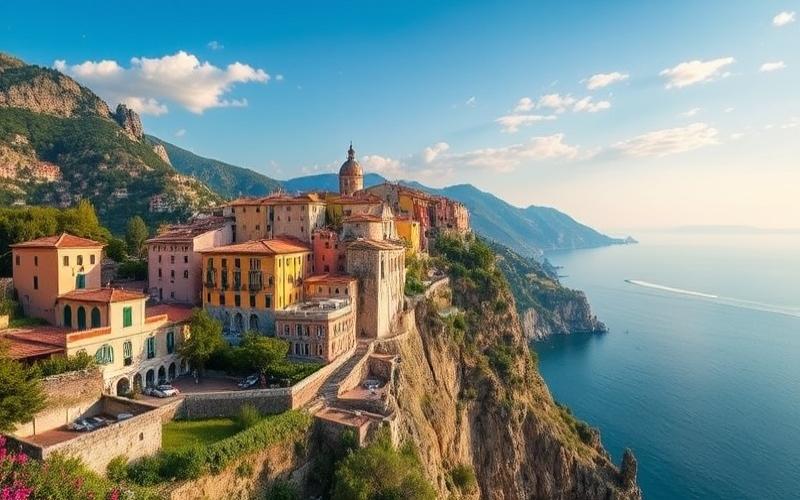
 Published on and written by Cyril Jarnias
Published on and written by Cyril Jarnias
Italy, an Ideal Destination for Expatriate Seniors
Italy, with its timeless beauty, pleasant climate, and unparalleled cultural richness, attracts many expatriate seniors seeking an ideal place to invest and enjoy a peaceful retirement. In this country where history meets modernity, investment options are as varied as the landscapes stretching from the Alps to the Mediterranean coasts.
Whether in regions renowned for their vineyards like Tuscany, in Sicily for its island charm, or in the picturesque villages of the Amalfi Coast, Italy offers unique opportunities to turn a retirement dream into reality.
Explore the Best Investment Opportunities
Explore with us the key locations for successful investment in Italy, while discovering the financial benefits and exceptional quality of life this country has to offer.
Good to Know:
Italy offers advantageous tax incentives for foreign retirees, particularly with the “Residenti Non Domestici” tax regime.
Best Cities for European Seniors in Italy
Italian cities most suitable for European seniors are evaluated according to five main criteria: cost of living, healthcare infrastructure, climate, urban accessibility and transportation, senior-friendly services. These criteria are based on quality of life indicators and access to care, as well as the demographic dynamics of aging in Italy.
- Cost of living: comparison of goods basket, rents, local taxation, cost of home services and senior residences.
- Health: density of hospitals and clinics, waiting times, geriatric care availability, proximity to RSA (Residenze Sanitarie Assistenziali) and senior residences.
- Climate: mild winters and bearable summers, considering heatwave or humidity risks.
- Accessibility: public transportation, adapted roadways, slopes, urban elevators, accessibility for people with reduced mobility.
- Senior services: existence of social centers, municipal assistance services, community networks, perceived safety.
Recent Statistics Useful for Decision Making
- Italy has approximately 24% population aged 65+ (≈14 million), expected to reach ~35% by 2050; those aged 80+ would increase from about 7.6% to 14.1%.
- Approximately 28.4% of those 65+ are not self-sufficient (≈4 million, 2023), increasing demand for adapted housing and services.
- Liguria (Genoa) illustrates accelerated aging: aging index 258 compared to 168 nationally in 2018; high longevity and healthier aging among major cities.
- At European level, a significant portion of seniors reside outside major centers, highlighting accessibility and service challenges in non-metropolitan regions.
Focus on Key Cities
- Florence
- Assets: world-class culture (museums, opera), Tuscan cuisine, efficient regional healthcare network, human-scale urban environment.
- Accessibility: good bus and train network; historic center sometimes challenging for mobility, but well-developed local services.
- Safety: good perceived level in residential neighborhoods; high tourist traffic to manage.
- Rome
- Assets: extensive healthcare options (public/private hospitals), abundant culture and leisure activities, international airports.
- Accessibility: extensive transportation but congestion; need to choose well-served and flat neighborhoods.
- Cost: higher in hyper-center; affordable options in well-connected periphery.
- Bologna
- Assets: university city with efficient public services, quality healthcare, friendly atmosphere, renowned cuisine.
- Accessibility: compact center, soft mobility; good national rail connections.
- Safety: good perception, stable quality of life.
Lesser-Known but Advantageous Options
- Lecce (Apulia)
- Assets: mild climate, lower cost of living, baroque heritage, peaceful pace of life.
- Considerations: summer heat; verify access to medical specialties and off-season connections.
- Trento (Trentino-Alto Adige)
- Assets: high quality of life, safety, efficient public services, healthy environment; summer moderated by altitude.
- Considerations: colder winters; slightly higher cost than other medium-sized cities.
Comparative Summary Table
| City | Cost of Living | Health | Climate | Accessibility | Culture & Cuisine | Safety |
|---|---|---|---|---|---|---|
| Florence | Medium+ | High | Mild, hot summers | Good | Very High | Good |
| Rome | High (center), medium (periph.) | Very High | Temperate, heatwaves | Extensive but congested | Very High | Varies by neighborhood |
| Bologna | Medium | High | Mild continental | Very Good | High | High |
| Lecce | Low-medium | Medium | Mild, very hot summers | Medium | High (local) | Good |
| Trento | Medium+ | High | Cold winter, temperate summer | Very Good | Good | Very High |
Expatriate Senior Testimonials
“In Florence, we appreciate being able to do everything on foot, with an accessible family doctor and cultural activities every week. Summers are hot, but neighborhood services compensate.”
“In Bologna, the community is welcoming and transportation facilitates medical appointments. We feel safe, even in the evening.”
“In Lecce, the cost of living allows us a bright apartment near the center. We need to anticipate August heat and trips for certain specialists.”
Structural Elements on Senior Housing and Services
Expanding market of senior residences in Italy: independent housing with à la carte services, positioned between home and RSA; strong demand driven by aging and increasing non-self-sufficiency.
Particular interest in Liguria and aging major cities (example Genoa), where longevity and accessibility needs coexist.
City Selection Checklist
- Evaluate access to hospitals/geriatric consultations within 30 minutes radius.
- Test mobility: slopes, urban elevators, bus frequency, proximity to train station.
- Estimate housing budget + utilities + home services; compare center vs well-served neighborhoods.
- Map municipal senior services and local associations (clubs, volunteering, mutual aid).
- Analyze climate over 12 months (heatwaves, humidity, pollution peaks) and adapt housing accordingly.
Practical Tips for Successful Expatriation
Administrative Procedures
- EU citizens: registration at comune anagrafe (residence), obtaining codice fiscale, registration with regional health service (SSN) for access to public healthcare.
- Complementary health insurance recommended to cover private wait times/procedures.
Local Integration
- Take neighborhood Italian courses; register with municipal social centers and volunteer associations.
- Choose neighborhood with market, pharmacy, family doctor, and bus stops within 500 meters.
Support Network
- Identify home assistance services, senior residences and nearby RSA.
- Join expatriate groups and senior clubs to combat isolation and share local recommendations.
Housing Strategy
- Prioritize apartments with elevator, reversible air conditioning, good insulation, and ground-floor commerce.
- Consider senior residences for secure and flexible framework, especially in case of progressive loss of autonomy.
For European seniors, combining a culturally rich city (Florence, Bologna, Rome) with a flat, well-served neighborhood close to healthcare is often the best equation. Options like Lecce or Trento offer excellent cost/quality of life compromise, provided climate and access to certain medical specialties are anticipated.
Good to Know:
In Italy, the best cities for European seniors, according to criteria such as cost of living, healthcare system quality, and accessibility, include Florence, Rome, and Bologna, which shine through their cultural richness, renowned cuisine and safety. Florence offers perfect balance between artistic heritage and leading healthcare services, while Rome attracts with its blend of traditions and modern medical infrastructure. Bologna, with its senior-friendly services, offers varied activities and attractive social benefits. For those seeking less touristy but equally advantageous options, Lecce offers peaceful and economical living environment in the south, while Trento, in the north, stands out with its cool climate and enchanting mountain landscapes. Seniors already expatriated in Italy emphasize the importance of understanding administrative procedures, such as obtaining codice fiscale and registering with the healthcare system, to facilitate integration. Local expatriate groups and community support initiatives can also play crucial role for smooth transition.
Investing in Real Estate for Retirement in Italy
Investing in Italian real estate for retirement offers dual advantage: high quality of life in very diverse regions and attractive tax schemes, particularly for new residents in southern Italy. Prices remain competitive compared to other European countries, with varied market ranging from urban apartments to countryside homes and coastal villas.
Regional and Property Diversity
- Tuscany and Umbria: hills, medieval towns, high-end markets and charming properties (casali, renovated farms, apartments in historic centers).
- Sicily: coastal villages, village homes to renovate at contained prices and opportunities in dynamic or revitalizing municipalities.
- Northern Lakes (Como, Maggiore): upscale residences with strong international demand.
- Major Cities: Rome (heritage), Milan (economic hub, connectivity), Florence (culture and seasonal rentals).
- Property Types: downtown apartments, countryside homes, village homes to renovate, seaside villas, lakeside properties.
Current Market Trends
- Renewed interest driven by welcoming taxation, still competitive prices and unique architectural heritage.
- Senior buyers’ objective is often pleasure purchase and inheritance, more than immediate profitability.
- Market perceived as stable, accessible and diversified, attracting many expatriates and retirees.
Regions Favored by Expatriate Seniors
- Tuscany: classic high-end options, quality cultural and rural setting.
- Umbria: gentler priced alternative, landscapes similar to Tuscany.
- Sicily: attractive acquisition cost, coastal villages and municipalities offering revitalization opportunities.
Financial and Tax Aspects
- Purchase costs (notary, taxes, fees): approximate magnitude around 10% of price, similar to France.
- Foreign retirees in South: flat tax of approximately 7% on foreign-source income for limited duration (9-10 years depending on conditions), subject to installation in small municipalities of Southern regions (e.g. Sicily, Calabria, Sardinia).
- Wealth taxation: inheritance and donation generally moderate, with allowances and relatively low rates, advantage for inheritance planning.
- Rental income and capital gains: framework perceived as moderate and predictable for investors, with network of international tax treaties.
Managing Investment from Abroad
- Procedures: sometimes lengthy administrative delays; strong recommendation to be assisted by local notary or lawyer.
- Management mandate: entrust rental and maintenance to specialized local agency (long-term or short-term depending on area).
- Key verifications (due diligence):
- Urban planning and cadastral compliance before purchase.
- Technical diagnostics and renovation costs, especially for older or 1€ properties.
- Condominium regulations for apartments in historic centers.
- Insurance: home, landlord liability, rent default coverage if long-term rental.
- Cross-border taxation: coordinate tax residence, pension taxation and possible bilateral treaties; consult international tax advisor.
Useful Local Resources
- Real estate agents specialized in international/senior clientele, with portfolio in Tuscany, Umbria, Sicily, Northern lakes.
- Lawyers and notaries to secure titles, compliance, and acquisition taxation.
- Rental managers and property managers for remote supervision, particularly in tourist or historic areas.
Practical Tips for Seniors
- Prioritize proximity to healthcare services, transportation and commerce; verify property accessibility (floors, elevator) in historic centers.
- Evaluate resale liquidity: deeper markets in Milan, Rome, Florence, lakes; slower pace in Southern villages, but lower entry prices.
- Adapt rental strategy: short-term in tourist areas (seasonal profitability) vs. long-term for income stability.
- Budget for works and recurring charges (condominium, local tax), especially in older buildings.
Comparative Table of Key Areas
| Area | Price Profile | Main Assets | Risks/Considerations |
|---|---|---|---|
| Tuscany | Medium to High | Heritage, international demand, beautiful rural properties | Competition, high maintenance costs for casali |
| Umbria | Medium | More affordable alternative to Tuscany, landscapes | Less liquid market than Tuscany |
| Sicily | Low to Medium | Attractive prices, coastal villages, Southern tax regimes | Heavy renovations, administrative delays |
| Northern Lakes | High | Strong international demand, upscale | High entry tickets, verify local taxation |
| Milan/Rome/Florence | Medium to High | Liquidity, services, seasonal/long-term rental | Moderate net yields, condominium charges |
Case Studies and Testimonials
“After 35-year career, we chose apartment in Florence: easy to manage, well rented in mid and low season, and culturally rich daily life. Profitability isn’t our priority; we prioritize personal use and inheritance.”
“We purchased village home in Sicily to renovate. Purchase price was very low, but we budgeted substantial works and mandated local lawyer; 7% taxation on our pensions influenced our relocation decision.”
“Between Umbria and Tuscany, we opted for Umbria for more affordable casale. We delegate management to local agency and visit each spring; it’s pleasure purchase planned for retirement.”
Good to Know:
Key points to remember: diversity of regions and properties, welcoming taxation for new Southern residents (flat rate), market oriented toward usage and heritage rather than pure yield, and importance of local legal and tax assistance.
Express Checklist
- Define usage (primary/secondary residence, rental).
- Choose region according to services, climate, budget and liquidity.
- Calculate purchase costs (≈10%) and works.
- Verify urban planning compliance and titles.
- Anticipate personal taxation (7% regime if applicable) and rental taxation.
- Select agents, lawyer/notary, local manager.
- Plan remote management (mandate, insurance, reporting).
Good to Know:
Investing in Italian real estate for retirement presents numerous advantages, particularly the diversity of regions and property types available, ranging from apartments to countryside homes. Tuscany, Umbria and Sicily are especially favored by expatriate seniors, thanks to their cultural heritage and picturesque landscapes. Italian real estate market is currently booming with attractive prices, particularly in these regions. Favorable tax incentives, like the non-habitual resident regime, allow foreign retirees to benefit from income tax reductions. Managing real estate investment from abroad can be facilitated by specialized real estate agents and local lawyers, who offer adapted services and advice. Some expatriate seniors testify to benefits of living in enchanting setting, enjoying more affordable cost of living compared to other European countries.
Advantages of Low Cost of Living for Expatriates in Italy
A low cost of living in Italy allows expatriate seniors to increase their purchasing power and improve their quality of life, especially outside Northern major metropolitan areas. This translates to lighter monthly expenses and wider financial margin for comfort, leisure and savings.
Food
- Fresh products (local markets, short circuits) and dining outside tourist centers remain affordable, reducing monthly basket and enabling quality food without extra cost.
- Example monthly budget for single retiree in Tuscany or Apulia: food around €160 in locally optimized basket.
Housing
- Rents are much lower in many medium-sized cities and Southern regions, offering comfortable apartments for fraction of Milan or Rome prices.
- Example: renting retiree in Tuscany/Apulia, rent €550–850 + ~€100 utilities.
- Regional disparities are marked: North-South divide favors significantly gentler costs in Sicily, Apulia, Calabria, Basilicata.
Health
- Public system (SSN) strongly reduces out-of-pocket expenses; senior complementary health insurance remains modest compared to other European countries, typically €70–100 in realistic budget examples.
- Routine medical and pharmaceutical expenses are generally contained, supporting better budget predictability.
Purchasing Power and Quality of Life
With lower current expenses, retired couple can fund more leisure, culture and internal travel, while maintaining monthly savings cushion.
Savings on housing and food convert to comfort (better living space, regular outings) and financial serenity.
Favorable Tax Implications
Italy offers for certain retirees settling in specific Southern municipalities flat rate regime of 7% on foreign-source income for 10 years, strengthening net disposable income.
Lower living costs, combined with attractive tax framework, amplify gap between received income and expenses, supporting more sustainable wealth.
Investment Opportunities
- Real estate: more accessible purchase prices in Mezzogiorno and medium-sized cities enable acquiring primary or rental residence with contained budget, and moderate recurring charges.
- Asset allocation: monthly savings (lower rent, contained food and health) free up capital for prudent financial investments (government bonds, diversified funds) or property enhancement works.
Examples of Advantageous Cost of Living Cities/Regions
- Apulia: Bari, Lecce — rents and daily life significantly lower than major capitals; retiree profiles often mentioned for controlled budgets.
- Sicily: Palermo, Catania — very affordable options for housing and food, with broad local market offerings.
- Calabria and Basilicata: small towns and municipalities eligible for 7% tax regime for retirees, significantly strengthening purchasing power.
- Tuscany outside major tourist areas: medium-sized cities where single retiree can target €975–1,275 monthly all-inclusive budget while renting.
Indicative Monthly Budget Examples
Single Retiree (Tuscany/Apulia)
- Rent: €550–850
- Utilities: ~€100
- Food: ~€160
- Complementary Health: ~€75
- Transport/Leisure: ~€90
- Total: €975–1,275
Expatriate Couple
- Housing: €800–1,200
- Food: €400–600
- Health/Insurance: €100–200
- Transport: €100–200
- Leisure: €200–300
- Indicative Total: ≥€2,810 depending on location and consumption style
Succinct Comparative Table North vs South (general trend)
| Item | Major Northern Metropolises | Medium Southern Cities |
|---|---|---|
| Rent (T2/T3) | High | Moderate to Low |
| Food | Medium to High | Low (local markets) |
| Health (complementary) | Moderate | Moderate |
| Retiree Taxation | Standard | Possible 7% on foreign income (eligible areas) |
| Disposable Income | More constrained | More comfortable |
Thanks to combination of low cost of living, potential tax relief and accessible real estate prices, expatriate seniors in Italy can transform daily savings into sustainable purchasing power, superior quality of life and tangible investment opportunities.
Good to Know:
Living in Italy with low cost of living presents numerous economic advantages for expatriate seniors, allowing them to maximize purchasing power and improve quality of life. For example, cities like Palermo or Catania in Sicily, as well as certain regions of Calabria, offer housing and food costs significantly lower than major cities like Milan or Rome. These savings translate to greater budget flexibility for leisure, travel, or access to quality private healthcare services. Moreover, Italy offers significant tax advantages, particularly for retirees from countries having bilateral agreements with Italy, which can considerably reduce income tax. These savings also create investment opportunities, such as purchasing real estate at attractive prices, enabling generation of rental income or capitalizing on property value appreciation.
Disclaimer: The information provided on this website is for informational purposes only and does not constitute financial, legal, or professional advice. We encourage you to consult qualified experts before making any investment, real estate, or expatriation decisions. Although we strive to maintain up-to-date and accurate information, we do not guarantee the completeness, accuracy, or timeliness of the proposed content. As investment and expatriation involve risks, we disclaim any liability for potential losses or damages arising from the use of this site. Your use of this site confirms your acceptance of these terms and your understanding of the associated risks.

